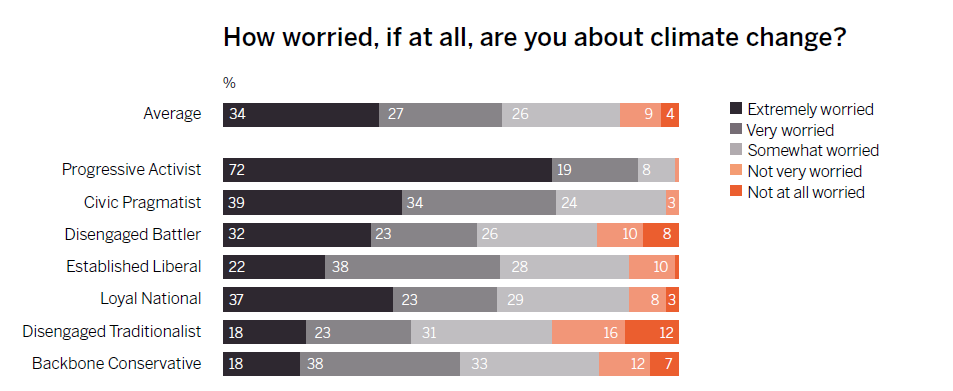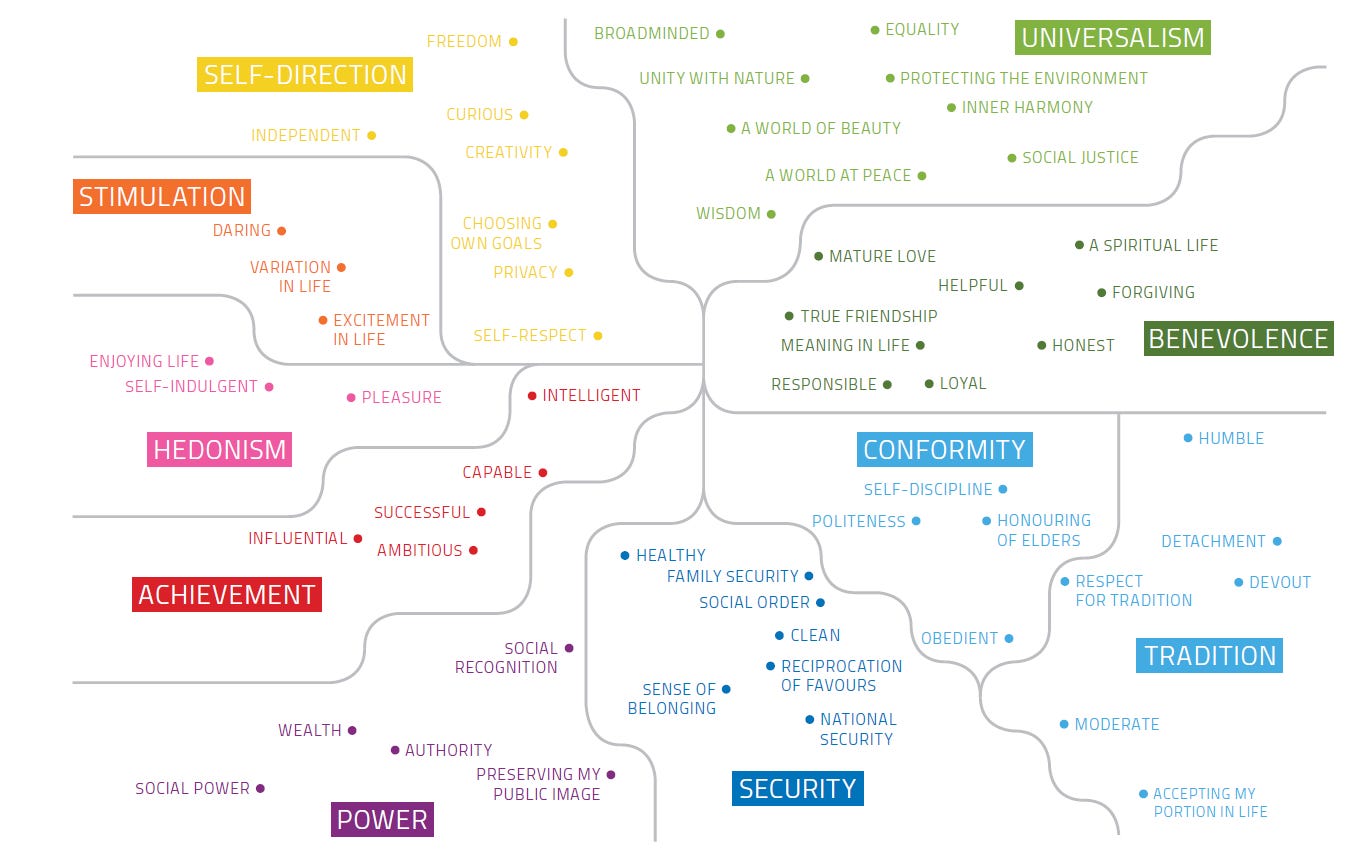How to talk about the climate crisis without losing friends & alienating people: a guide
A guide to an awkward but necessary conversation starter.

We need to talk.
About the elephant in the room. About that awkward silence at the family reunion and that Tweet you wanted to send but worried was ‘too much.’
Talking about the climate crisis is awkward, particularly when the people you’re talking to don’t want to hear it. The doom-and-gloom headlines are too horrible to bear, the solutions too abstract. Who would want to spend more time thinking about it?
I used to worry that I sounded repetitive or preachy bringing up sustainability so often. I cared more about keeping things pleasant and inoffensive. And the result was… nothing. No impact, no change.
We need to get used to having difficult conversations about the climate. The more we talk about it, the more it becomes socially acceptable to talk about it, and ultimately - to act on it.
And it doesn’t have to be depressing. A conversation about the climate crisis should also be a conversation about the solutions that are out there, and about the world that could be: a greener, fairer and healthier world. Those aren’t buzzwords or idealistic visions, they are tangible and achievable things - if we get everyone on board.
***
The Green Fix is collaborative: I write about what you want to hear about. This relies on people sending in their questions and suggestions. Shape the newsletter by taking part in the Instagram polls and filling in this feedback survey.
***
Do me a favour and share The Green Fix! I run The Green Fix for free, in my own time, alongside a full-time job *world’s tiniest violin starts playing*. If you like this newsletter, please help me by sharing it using the button here:
What’s Going On?
US President Joe Biden rejoins the Paris Agreement, one of the many climate policies he has committed to do.
Relevant: What is the Paris Agreement?The UK has approved the use of a pesticide harmful to bees, which was previously banned by the EU.
Relevant: A public petition to overturn the decision.Indigenous leaders Almir Suruí and Raoni Metuktire sue Brazilian president Bolsonaro for crimes against humanity.
Relevant: What is Bolsonaro’s impact on the environment and human rights?Environmental activist Gustavo Cardona Molina was killed in Colombia, where 7 social leaders have already been killed this year.
Relevant: Why are environmental activists being killed?A million young people ask governments to prioritise the climate crisis.
Relevant: How can governments adapt to be more climate resilient?
Focus On… Talking about the Climate Crisis
This guide is a collaboration between me and Tom Moylan, European Commission Corporate Communications Adviser and writer of the Moylanguage newsletter.
Why does it matter how I talk about the climate crisis?
The language we use impacts how we think about topics, and can present different versions of the same event.
Most of us, including me, were taught about the climate crisis in school, usually featuring a polar bear on a melting iceberg. It was called ‘climate change’ or ‘global warming’ - phrases that have also been used by climate deniers to downplay the seriousness of the situation (think of that Twitter troll that keeps saying the climate has always been ‘changing’).
In 2017, The Guardian officially changed its style guide to replace ‘climate change’ with ‘climate crisis,’ while governments declared ‘climate emergency.’ This is a deliberate way to show how urgent the problem is.
I know it’s a crisis. But how can I get my family/postman/cat to take me seriously?
Talking about the climate can be awkward. Who has found a way to bring up the IPCC report in a Zoom party without killing the vibe? Being an environmentalist has also had a host of unwelcome attached stereotypes over the years: treehugger, ‘mung-bean munching eco-freak,’ or doomsdayer.
But the differences between social groups are outweighed by our similarities when it comes to climate change. As a whole, people of all political views agree that the climate crisis is a serious issue:

What studies like these find is that differences between us come from different perspectives on how to address the crisis and who should be doing it - which could fill a whole book in itself. But when it comes to getting people around you to listen, the common values are where we need to start.
But we have completely different values!
Our values drive our behaviour. This values chart by PIRC shows which values tend to occur together: as in, if you value tradition highly, you’re more likely to also value security than, say, hedonism.

People who value things with an external benefit (like altruism and concern for others) are more likely to care about climate change. The trick is to find the overlap between those values for the outside world, and the values of the person you’re talking to.
For example, freedom and security are likely to be shared among people of very different political and social beliefs - so making connections between climate action and a secure future for local lands, the economy and/or wellbeing would be a good place to start.
[For a helpful handbook on identifying values, check out Eco.Talks]
Dos and Don’ts
DO:
Tap into the values of the person you’re talking to (see.. literally the previous paragraph).
Make it personal
What does climate change mean for them in the here-and-now? How is it already impacting local areas, the air quality of your city, the health of your neighbours?Share your story
Why do you care about the climate crisis? Share how you became interested, and why it matters so much to you. This can have far more impact than reciting scientific statistics.Provide solutions
Show people the potential benefits of taking action. By creating a vision of a world we want - nature restored, better health and wellbeing, green jobs and secure futures - it gives your audience a reason to hope and a reason to act.Show by doing
Sometimes actions speak louder than words. By consistently acting in line with your values, sharing the reasons for your behaviour, and letting your convictions drive your behaviour, you are part of the movement making sustainability a social norm.
DON’T:
Focus on doom-and-gloom headlines
When I read about the 6th mass extinction, I don’t feel motivated - I feel powerless. Apocalyptic headlines are likely to drive people away.Lecture
Changing people’s minds means listening to them, their values and concerns. It’s a conversation, not a sermon.Focus on the numbers
Scientific evidence is useful to back up what you’re saying - but you wouldn’t normally talk like a textbook to your friends, so sprinkle the stats in lightly.Only talk to people who already agree
These days it’s easy to exist in a bubble of like-minded people, especially online. But for real change we need to talk to people of different political and social beliefs, and have difficult conversations.
More information:
Communications nerds (like me) can check out a more in-depth and technical guide to talking about the climate in an upcoming edition of Tom Moylan’s fantastic newsletter - subscribe to receive it.
So Now What Do I Do?
LEARN MORE
Check out this interesting study by UK organisation PIRC on how people think about climate justice.
Read Climate Outreach’s handbook on how to have a climate change conversation - and put it to the test!
Climate deniers are rare these days. But just in case, here’s a comprehensive rebuttal of almost every argument against climate change.
TRY SOMETHING NEW
Share Climate Outreach’s video & article on how to encourage positive lifestyle change.
Climate media outlet Grist are holding a climate fiction writing competition asking you to envisage the world in 2200. Closes 12th April, first prize $3000.
Join this free online course on Climate Change Solutions, by the University of Exeter.
CHANGE THE SYSTEM
Join the next Fridays4Future Global Climate Strike on the 19th March!
Organise an event for upcoming Earth Day on the 22nd April.
Pre-register for the UN SDG Global Festival of Action to take part in discussions about real solutions to the climate crisis, inequality and poverty.
If you have a topic you want the Green Fix to cover, fill out this feedback form & tell us your idea!
By the way… Are you an outdoor enthusiast? Do you think protecting mountains and the planet is cool? Check out MTN Impact, a newsletter with the admirable description as ‘a sustainability awareness platform cleverly diguised as an outdoor adventure newsletter.’
Stay in the loop
I share updates on the Green Fix, polls and additional resources on Instagram @coffee_and_casstaways. You can also say hi on Twitter.
Know someone interested in environmental issues? Forward this email to them - we want to reach people who care about doing more for the planet, with your help!






Thank you so much for this great piece!
I ABSOLUTELY loved this.
I have been looking for an article like this for quite a while, it perfectly puts words to the thoughts and questions I've had in my mind for a while.
I am so interested in humanising the climate conversation, for every day people to make every day change. I would love to connect and talk more, learn about your journey to now Cass.
Thanks again!